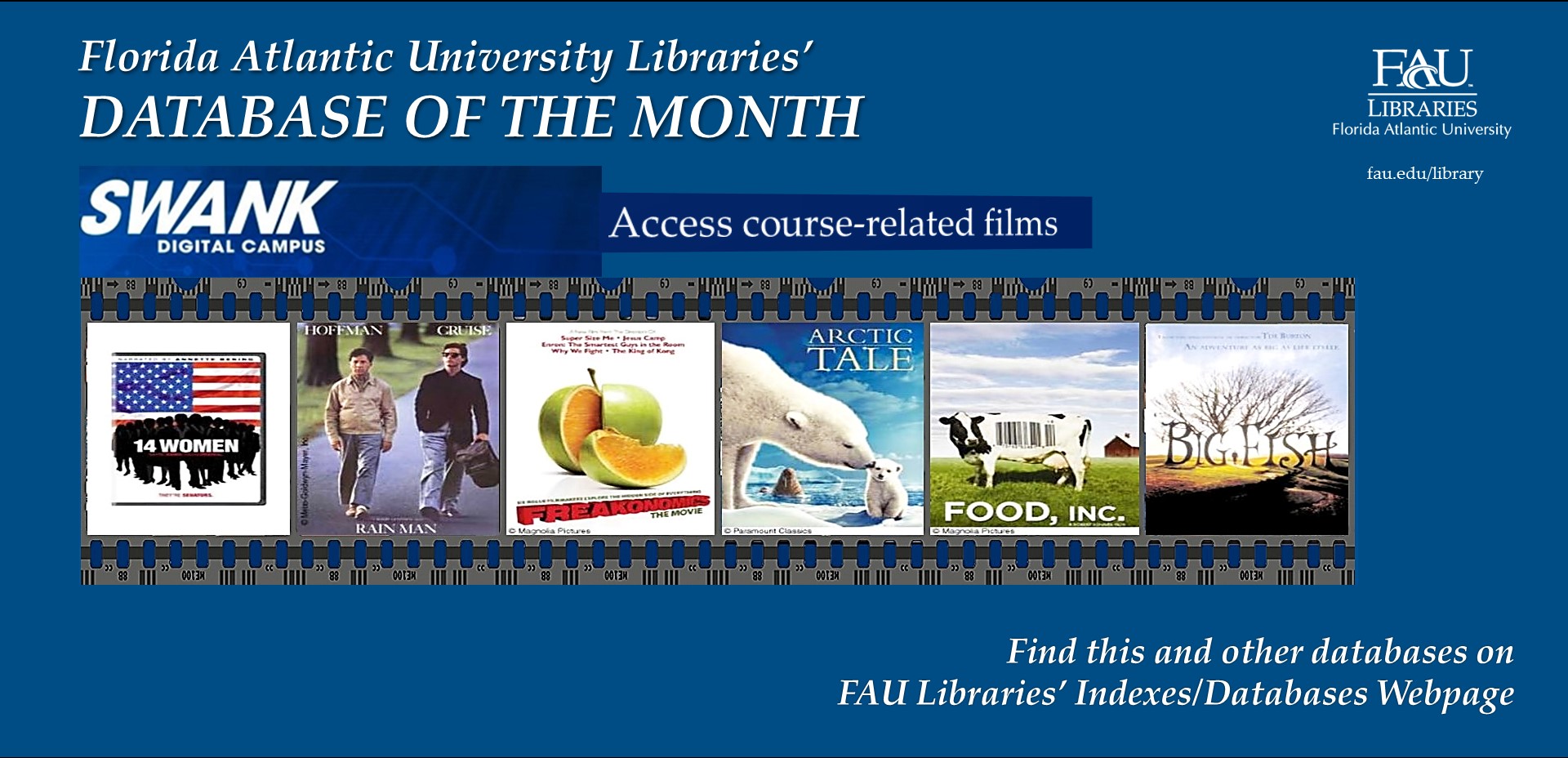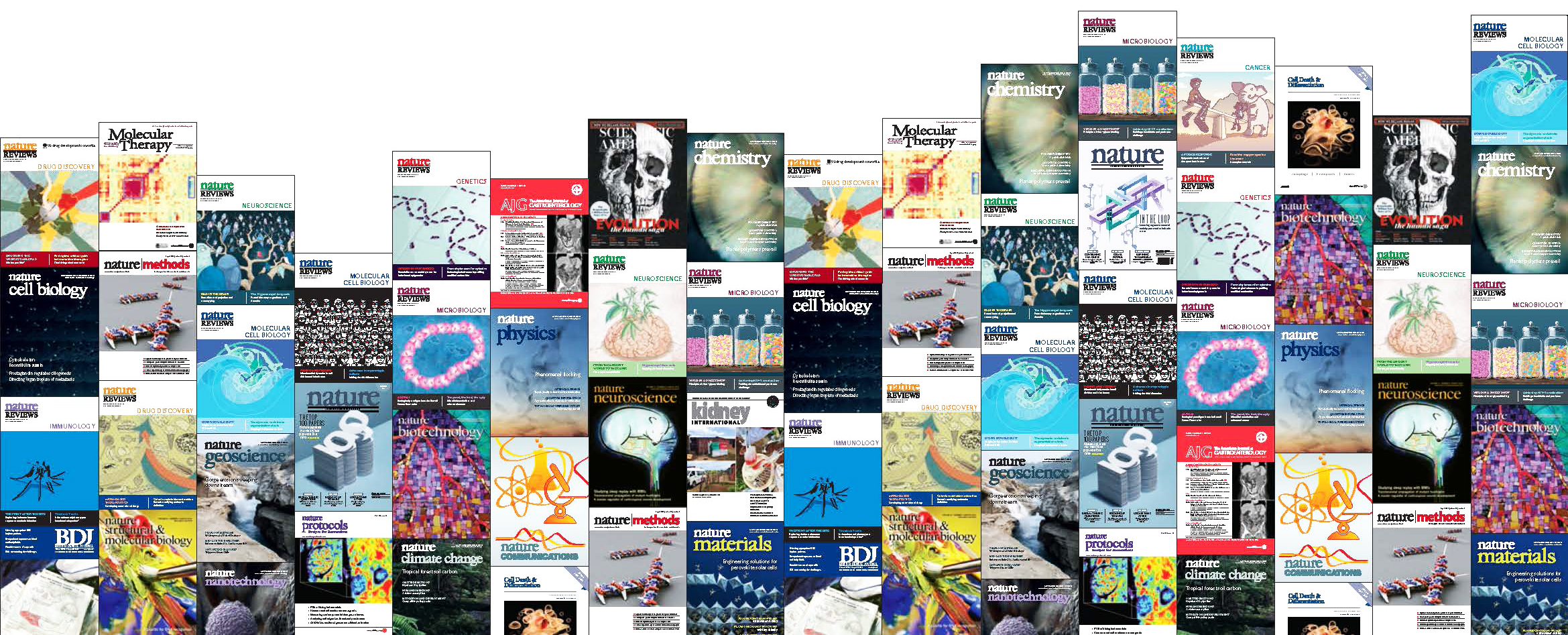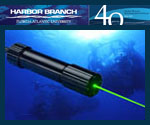Digital Campus by Swank Motion Pictures, Inc. allows students to legally view course-assigned films once they are logged into Blackboard or FAU’s electronic library. Providing digital access to these films allows educators to enhance the distance learning experience. We now have access to numerous documentaries and the top 200 films on Digital Campus.
Benefits of using Digital Campus include:
Saving time: Valuable class time can be spent on other activities, since students can view the films outside of class.
Convenience: As long as students have Internet access on a PC or Mac, and they have downloaded the necessary free software, students can quickly and easily view assigned films from wherever they are located.
Access on demand: Having to wait to obtain a copy of a checked-out DVD is no longer a concern with Digital Campus titles. Faculty can fill out a form any time to request access to a film that is provided by Digital Campus.
Simultaneous use: Once access to the film has been provided, all students enrolled in the course can simultaneously view it.
Use of Digital Campus is limited to current FAU faculty, staff, and students.









